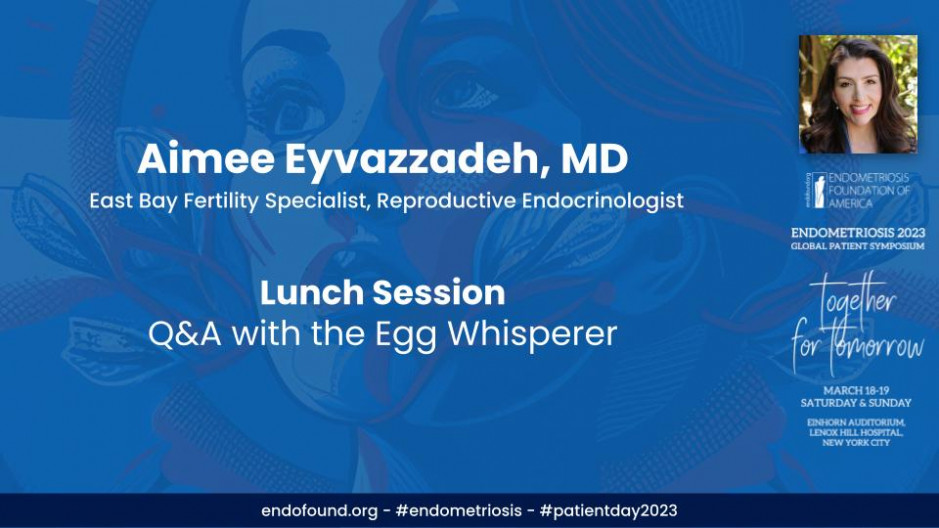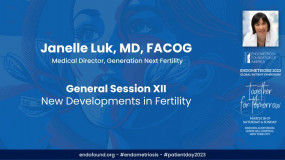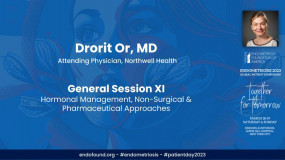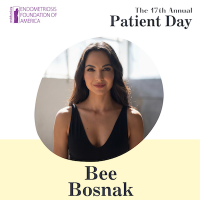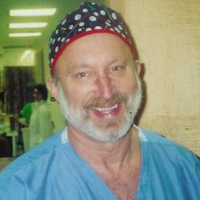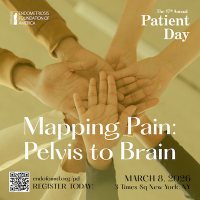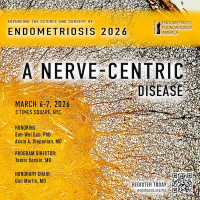Endometriosis 2023:
Global Patient Symposium
Together for Tomorrow
March 18-19, 2023 - Einhorn Auditorium, Lenox Hill Hospital, NYC
Hi everyone. Thank you for inviting me to speak today. What I'd like to share is my strategy for helping women who have pain and infertility wilding dealing with endometriosis. I'm sick and tired of patients being told that their pain doesn't matter or that endometriosis does not cause infertility. So I'm really glad that we have symposiums like this to hopefully educate and spread the word that endometriosis is one of the, in my opinion, leading causes of infertility as well as the leading cause of unexplained infertility. So if you're listening and you're out there and you've been given that diagnosis of unexplained, just ask your doctor, is it possible that I might have endometriosis and or adenomyosis? Even yesterday I had a patient and I feel like we should have a website out there for the stupid things that patients are told by, by doctors. And it's like, maybe if we can put all these things together and just put them out there as like you guys, like you guys gotta stop saying this to patients.
A patient has a, you know, a 20 centimeter adenoma myoma in her uterus, pain, heavy bleeding, and her doctor says, it does not cause infertility. Mind blown. I'm like, really? And so I feel like we should educate not just, um, patients out there about the connection between endometriosis and infertility, but also we can do so much more to educate the OB G Y N community as well. So when it comes to my approach, what I like to do is obviously talk to patients about their fertility goals. I wanna know what their pain is when they have their pain. I wanna know how many children they want. And then what I do is I look at their fertility levels, I look at their age, and then we ask ourselves, would it make sense to do surgery if needed? Now or later we talk about different strategies to prevent their pain.
And here are just some of the things that I do. Um, low impact exercise, a healthy diet, um, talking to a psychologist, a pelvic floor specialist. There's also some benefit perhaps in some patients who try low level laser therapy or red light. I also talk to my patients about supplements to support egg quality, like N-acetylcysteine coq 10. I also offer my patients frequent ultrasounds to understand what's going on as they're having pain, bringing them in, looking at their ovaries, looking at their uterus if they have an endometrioma, for example, looking and watching it, and then making decisions together as far as when the best time would be to proceed for a fertility preservation procedure like egg freezing or embryo freezing. And at the same time, we can use medications like birth control pills. Um, there's also progesterone only pills instead of a combination pill. We can also use an I u D as well.
So all of these strategies, and there are many more like Depo Lupron or, or Alissa. These strategies can prevent periods. And the pain in some patients who suffer from debilitating pain from endometriosis and adenomyosis, all of these can be used up until when you're trying to conceive. There's no washout period that a patient needs before they are ready to try. And then the other thing that I let my patients know is how important it is as soon as you deliver a baby to go back to your doctor and ask about measures to prevent endometriosis from coming back. And then I also talk to my patients about the importance of thinking about removing your fallopian tubes after you're done with your last pregnancy. And this is to prevent ovarian cancer. Freezing eggs and freezing embryos are two of the best ways patients can preserve their fertility if they're not ready to get pregnant right away.
It's really mean to tell a patient who has endometriosis, the treatment is getting pregnant or menopause. Because if you're not ready to get pregnant or you're not socially in that situation where you have that relationship, if that's something that you wanted before you had a baby and then say, go get pregnant, I mean, that's very frustrating. So the best thing that fertility doctors can do for our patients is offer them egg freezing or embryo freezing as soon as possible. I also highly recommend if that you're an endometriosis patient and you're thinking about surgery and you have pain and you're, you're thinking about having a baby in the future. Get your A M H level checked and see a fertility doctor before you move forward with surgery so that we can review all your options with you. Sometimes I've seen situations where patients have a lower A M H after surgery and they just didn't know what their A M H was before surgery, if it was low after surgery. So just going in with as much knowledge as possible is very empowering. So I'm hoping that by symposiums like this, we can maybe one day say that women are diagnosed with endometriosis when they first report pain and symptoms, and it has to stop taking over seven years because I'm still seeing that today. And thank you again for inviting me and I hope you guys have a lovely rest of your day and conference. Thank you so much.



